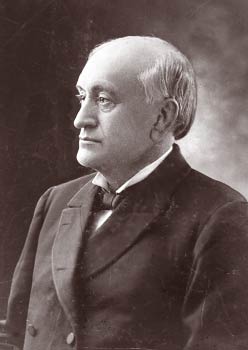Is the Church of the Nazarene a Pentecostal denomination? If not, should she be?
These are not hypothetical questions. On the floor of the June 2023 Nazarene General Assembly, there was a clear division of opinion. Delegates came close to amending a Manual statement in such a way that many believed would have significantly changed our longstanding doctrine at this point. (See the extended discussion of then Manual paragraph 925, as posted to YouTube at this link, where some delegates promoted a Pentecostal understanding of speaking in tongues). If the proposed changes had been finally adopted, the Church of the Nazarene, historically and intentionally non-Pentecostal, would arguably have introduced Pentecostal doctrine into its Manual. Thankfully, that outcome was narrowly avoided.
In the YouTube video, a pastor makes passing mention of 4 families who had recently started attending his church. Why? They left their former church because of the Pentecostal understanding of tongues that was being taught. (See video, beginning at 2:04). This corresponds with my experience as a missionary in West Africa, where one of our key early leaders had grown up in a Pentecostal church, but left.
Why did he choose to become Nazarene?
He had long sought “the gift” of speaking in unknown tongues, sometimes called “glossolalia,” because he had been instructed that speaking in tongues was the evidence of being baptized by the Holy Spirit. Because he never received this baptism, he couldn’t be enrolled in that denomination’s Bible college, even though he clearly sensed God’s call to pastoral ministry. Later, while sojourning in a neighboring country, he happened upon a Nazarene congregation. In conversation with the pastor after the Sunday morning worship service, he was thrilled to learn that – while we emphasize the work of the Holy Spirit – we have a different understanding of the gift of tongues (languages). Praying over the issue, he happily found a church home with us, and over time has become an effective leader of pastors. These stories show that our historic understanding of the nature of the gift of tongues as taught in Scripture can be attractive, particularly to those who have known only a Pentecostal interpretation.
We celebrate those around the world who have come to Christ through the ministry of Pentecostal churches; after all, we hardly believe that we alone as Nazarenes are being used by God to spread the Gospel! To think as much would be sectarian and contrary to Paul’s teaching about the Body of Christ in 1 Corinthians 12. However, we are purposely not a Pentecostal denomination, and some in our ranks are glad to have found a church with a different understanding of the gift of tongues.
What is that understanding?
Note: The explanation below is reproduced from p. 51 of the course, “Christian Theology 2,” which is part of the ITN-NTI curriculum for many African pastors studying for ordination in the Church of the Nazarene. The full course can be downloaded free-of-charge at this link, hosted by the Wesleyan-Holiness Digital Library (WHDL).
In Greek, the word translated as “tongue” is glossa. It is the word that appears throughout Paul’s comparison of prophecy and tongues in 1 Cor. 12-14. Importantly, the same root word appears in Acts 2:4: “All of them were filled with the Holy Spirit and began to speak in other tongues (or languages – Gk. glossais) as the Spirit enabled them.” It is clear from the Acts 2 account that the glossais in question were not “heavenly languages” (or so-called “prayer languages”) but earthly languages spoken by groups of people. In amazement, they ran to see what was going on, and exclaimed: “How is it that each of us hears them in his own native language?” (Acts 2:8). Were the disciples speaking these languages they had never studied or learned, or was this a miracle of listening, the Holy Spirit interpreting simultaneously so that these unbelievers could understand the gospel message? Both positions have been advanced. In any case, it was a “miracle of communication” (W.T. Purkiser, The Gifts of the Spirit, 55) allowing evangelism to happen when it otherwise would not.
The same phenomenon appears to have happened on two other occasions in Acts: First, at the house of Cornelius (Acts 10:44) and later in Ephesus (Acts 19:1-7). In both instances, large, multi-cultural groups were present who benefited by hearing the Gospel proclaimed in their heart language through the gift of languages.
The lessons of Acts should not be forgotten when we come to 1 Cor. 12-14. Some have suggested that pagan, non-sensical babble may have been imported into the church in Corinth, perhaps from one of the temples to the various Greek gods or goddesses or even local mystery religions. However, if this was true, it is hard to see why Paul would have allowed it at all, though Purkiser suggests that Paul may have been keen to separate what was “genuine” from what were “human imitations” (Gifts of the Spirit, 62). These “imitations” may be indicated by the use in 1 Cor. 14 of the term pneumatika (spiritual phenomena) instead of charismata (Ibid., 59). Since the Greek root word (glossa) is identical with what appears in Acts, it is possible that even in Corinth they were dealing with foreign languages, especially since Corinth was an important seaport that welcomed sailors and merchants from around the world. Such worshipers should not be forbidden from speaking, but in every case, their messages should be interpreted into a common language so that all can benefit (1 Cor. 14:26). On the other hand, when Paul says that tongues are a sign for unbelievers (14:22), he would seem to have the miraculous phenomenon of the Day of Pentecost in mind, a miracle of communication in genuine earthly languages.
Some who today practice speaking in tongues (or glossolalia, a compound word never appearing in the Greek New Testament) say they are speaking the “language of angels”(1 Cor. 13:1). Yet a fair reading of 1 Corinthians 13 does not support such a conclusion. Paul – good Pharisee that he was – is crafting a hypothetical argument, as indicated by the word “if” (v.1). Even if he could speak languages both human and angelic, if he neglected love, he would be nothing more than “a resounding gong or a clanging cymbal.” In any case, Paul is not promoting a private “prayer language” or encouraging us to speak the language of angels, whatever that might be.
There is a genuine gift of languages, and the New Testament model for this gift is most clearly seen in Acts 2. Tongues are given by God at key times to further the advance of the gospel by miraculously allowing clear communication despite language barriers.
Where do we go from here?
At the close of the debate at General Assembly, it was voted to retain the Manual paragraph under question, with only slight modifications that do not change the denomination’s position on tongues. (See Manual 926, “Evidence of Baptism of the Holy Spirit”; click here to access the 2023 Manual). As one who was instrumental in teaching that historic, non-Pentecostal position to Nazarene pastors in Africa, and knowing that it is still being taught as such through widely-used ministerial curriculum, the recent episode at General Assembly raises questions, such as:
1) What confusion might have been sown if the amendment to adopt the Pentecostal position had passed?
2) How would a contradiction between a revised Manual and long-taught positions as represented above by the “Christian Theology 2″ course be received by pastors and laypeople in the local church setting?” At a meeting of the African Region when I was serving as an educational missionary, a visiting General Superintendent spoke about the Board of General Superintendent’s concern for “theological coherence” in the denomination. Is this not one important example?
3) Is it time to craft an Article of Faith that addresses our broader understanding of spiritual gifts? It does give pause to think that a single General Assembly by a vote to amend a paragraph tucked away in the Manual Appendix could have changed our trajectory on an important issue. Articles of Faith are more difficult to change, and for a reason. They speak to our theological DNA. Certainly our understanding of spiritual gifts rises to that level?
4) Do we still educate Nazarenes, longtime and new, about our view of spiritual gifts? What recent resources have been developed to assist Nazarene pastors in this vital task?
Conclusion
We live in challenging times. Pray for our Nazarene leaders as they address this crucial issue of theological coherence, a key element of our unity.
____________________________________
Image credit
Flame: Patrick Hendry, CC BY-SA 4.0, via Wikimedia Commons




